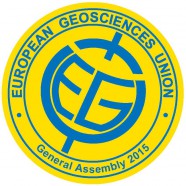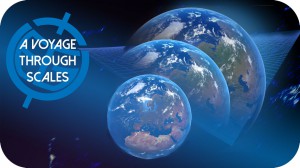European Geoscience Union Assembly 2015 | Vienna 12-17 April 2015
The General Assembly of the EGU will be held in Vienna, Austria, from 12th to 17th April 2015. The 2015 theme, A voyage through scales, is an invitation to contemplate the earth’s extraordinary variability extending from milliseconds to its age, from microns to the size of the planet.
EuroGeoSurveys will be present at EGU Assembly in three different sessions.
- EGU-AOGS (Asia Oceania Geosciences Society) Great Debate on Impact on global geoscience of accelerating Asian research – Mr J. Ludden | Mon, 13 April 15:30–17:00 | Room Y1.
This session will address the impact on global geosciences of the rapid growth of scientific and technological research in Asian countries. Some of the topics covered will include the enormous increase in the numbers of papers submitted to scientific journals, participation in international science programs, opportunities and implications of collaboration and mobility of researchers between Asian countries and the West, etc. The Director of the British Geological Survey, Mr John Ludden, will represent EuroGeoSurveys. Mr Ludden has been EuroGeoSurveys’ President in the period 2009-2010.
- Geoscience Information for Teachers (GIFT) Workshops –Mr C. Burlet | Wed, 15 April 8:30 -13:00 | Room G10.
The main objective of these workshops is to communicate first-hand scientific information to teachers in primary and secondary schools, significantly shortening the time between discovery and textbook. The GIFT workshop provides the teachers with materials that can be directly incorporated into their classroom, to explain related scientific principles or topics. Mr Christian Burlet, from the Geological Survey of Belgium, will present the EU co- funded Minerals4EU Project, and the EuroGeoSurveys book “Minerals in your life”.
- Communication and Education in Geoscience: Practice, Research and Reflection – Outreach and Public Engagement Case Studies – Ms C. Delfini | Thursday 16 Apr 13:30-13:45 | Room R12.
Scientists communicate to non-peer audiences through numerous pathways including websites, blogs, public lectures, media interviews, and educational collaborations. A considerable amount of time and money is invested in this public engagement and these efforts are to a large extent responsible for the public perception of science. However, few incentives exist for researchers to optimize their communication practices to ensure effective outreach. This session encourages critical reflection on science communication practices and provides an opportunity for science communicators to share best practice and experiences with evaluation and research in this field.
Ms Claudia Delfini, Communication Manager at EuroGeoSurveys, will give the talk “Unveiling the secrets of geology, from the Earth to your daily life”, presenting the EuroGeoSurveys publications meant to be a powerful tool of science communication to general public.
- Digital infrastructures to enhance international geoscience information access, provision and use – Convener: Matthew Harrison | Friday 17 Apr 15:30–17:15 | Room G1
Digital geological information on the composition, properties and dynamics of the subsurface is important for tackling many urgent social and economic challenges facing Europe and the rest of the world. Such challenges include sustainable supply of energy, water, and (rare) mineral resources; mitigation of natural hazards for the health and safety of citizens, storage of hazardous substances (e.g. radioactive waste, contaminants); mitigation of climate change by exploiting renewable energy and storage of greenhouse gases; and addressing conflicting claims on the use of subsurface space.
The objective of this session is to provide a forum to advance collaboration, and facilitate exchange of methods and ideas between those working in different disciplines to discuss the integration and harmonisation of geological information and services to inform ongoing European and global initiatives. There are also links to existing and developing Infrastructures and research infrastructures. In this context international examples are encouraged so best practice and experience can be shared including for example the implementation of INSPIRE specifications. Many of the end-users of geoinformation and services are not from the geoscience domain or are non-scientists so we also encourage papers from other domains and those with real requirements from the geoscience community.
On national, regional and local levels the acquisition, management and delivery of geological data and information is often the responsibility of geological surveys. The increasing importance of geological information for policy and industry at European and international level has recently been recognized by the European Parliament and the European Commission, who have called for the development of a common European geological knowledge base. The EGDI-Scope project responds to this, aiming to prepare for a pan-European Geological Data Infrastructure (EGDI), under the umbrella of the FP7 Infrastructures program. This session is promoted by EuroGeoSurveys and welcomes submissions from complimentary disciplines.



